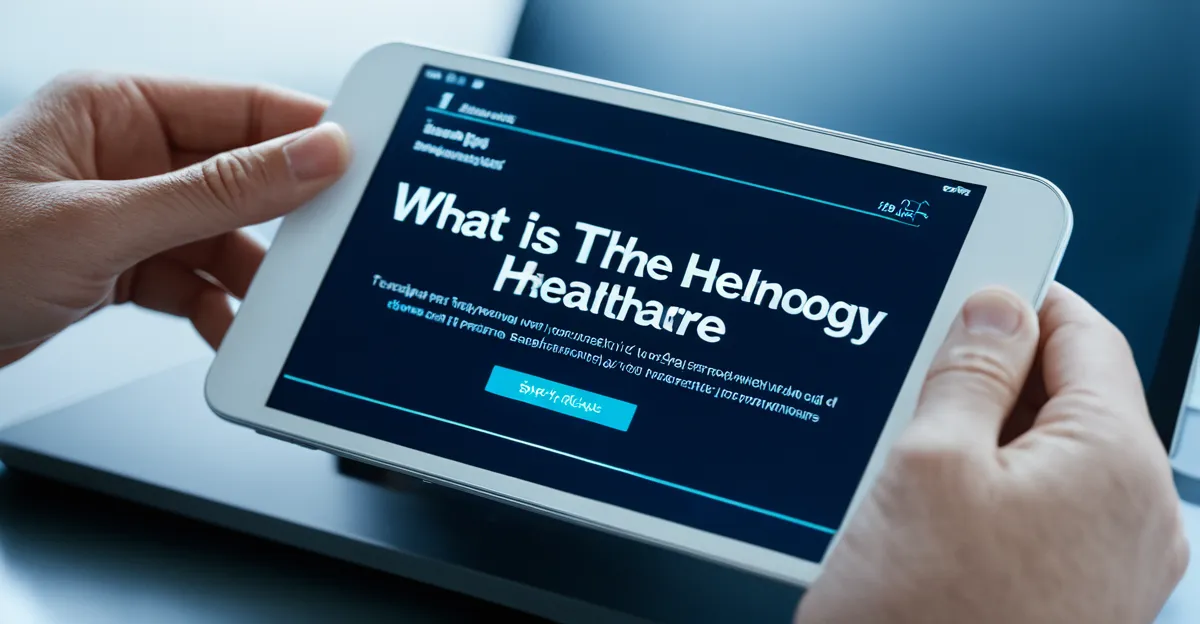Technology Adoption in UK Healthcare
The UK healthcare technology landscape has rapidly evolved, driven by the imperative to modernize and improve care delivery. Central to this evolution are several major technologies reshaping the healthcare system. First, the widespread implementation of digital health records has revolutionized patient data management. These electronic records provide clinicians with instant access to comprehensive patient histories, improving both efficiency and accuracy in care.
Artificial Intelligence (AI) is another pivotal technology accelerating the digital transformation NHS-wide. AI tools assist in diagnostics, risk stratification, and treatment personalization, enhancing decision-making quality. Coupled with AI, telemedicine has experienced significant growth, enabling remote consultations that extend NHS services beyond traditional clinical settings. This expansion enhances accessibility and continuity of care, particularly in underserved areas.
Also to see : How is the UK government addressing youth unemployment?
Driving this shift are key government and NHS initiatives focused on health IT adoption. Programs such as NHSX aim to coordinate digital transformation efforts, promote interoperability, and set standards for technology use in healthcare delivery. These initiatives ensure that adoption is not piecemeal but integrated systematically across the health service. By focusing on technology infrastructure, workforce training, and regulatory frameworks, the UK healthcare system is positioning itself for sustained digital innovation.
Improvements in Patient Care and Safety
The adoption of digital health records in UK healthcare has markedly enhanced patient management and continuity of care. These records enable seamless access to comprehensive patient data across different healthcare providers, reducing fragmentation and improving communication. This streamlined information flow directly contributes to safer treatment decisions and a more accurate understanding of patient histories.
Also read : What Are the Key Challenges Facing the UK’s Transportation System Today?
In terms of patient safety, digital health records have played a critical role in minimizing errors. By providing real-time access to medication lists, allergies, and previous test results, clinicians can avoid potentially harmful mistakes. This comprehensive data visibility supports enhanced diagnostic accuracy and tailored treatment plans, which lead to better healthcare outcomes.
Furthermore, improved data sharing facilitated by digital records helps healthcare teams coordinate care more effectively. For example, when patients transition between primary care and specialist services, their digital records ensure continuity without loss of critical information. This continuity not only bolsters patient safety but also reduces hospital readmissions and delays caused by missing or incomplete data.
Overall, the integration of electronic health records in the UK healthcare system stands as a foundational element of enhancing patient safety. It improves clinical workflows, supports evidence-based decisions, and ultimately delivers safer, higher-quality care.
Role of Artificial Intelligence and Advanced Technologies
Artificial Intelligence (AI) in healthcare is a cornerstone of the UK’s ongoing digital transformation NHS efforts. AI algorithms enhance diagnostics by analyzing complex medical data quickly, identifying patterns that may elude human clinicians. For example, AI-driven imaging tools assist radiologists in detecting abnormalities with greater precision, improving early diagnosis and treatment planning.
Beyond diagnostics, AI supports predictive analytics, enabling healthcare providers to anticipate patient risks and personalizing care to individual needs. This capability helps optimize resource allocation and proactive interventions, which are crucial for managing chronic diseases and reducing hospital admissions.
Integration of smart medical devices UK wide amplifies these benefits. Devices such as wearable monitors continuously track vital signs and transmit data to clinicians, facilitating real-time monitoring and timely responses. These innovations become particularly impactful when integrated with AI systems, providing comprehensive insights and augmenting clinical decision support.
The UK government and NHS technology strategy prioritize deploying these advanced technologies within existing healthcare frameworks. NHS initiatives encourage innovation while ensuring safety, interoperability, and ethical AI use. By focusing on scalable AI applications and smart medical devices, the UK is setting a precedent for technology-driven improvements in patient care and system efficiency.







